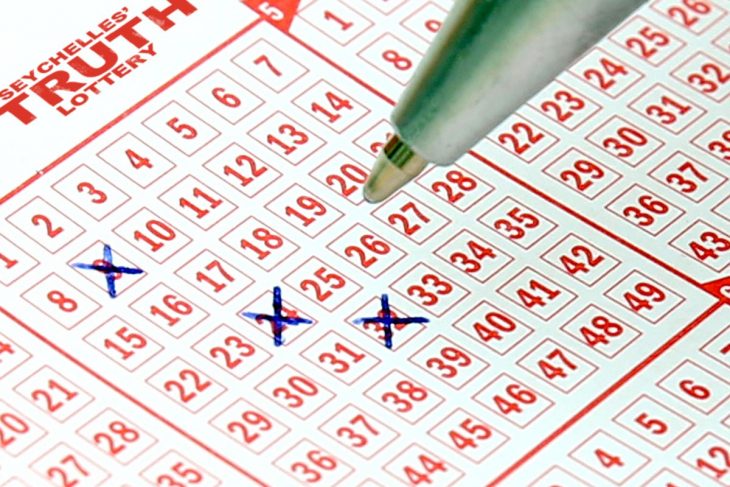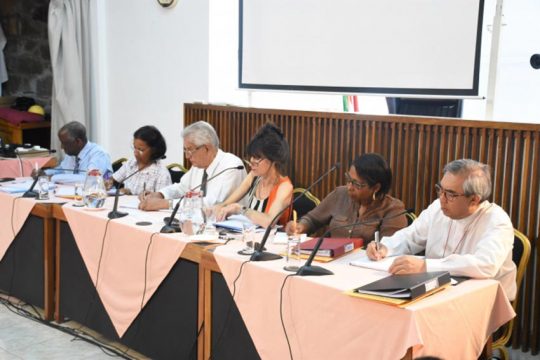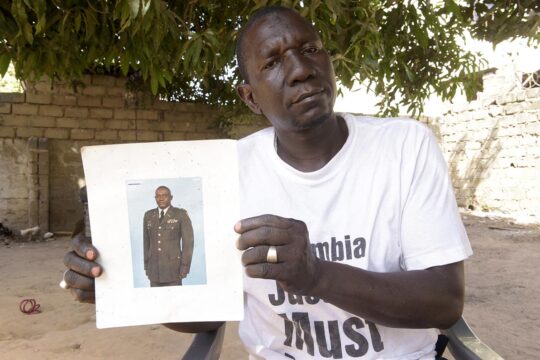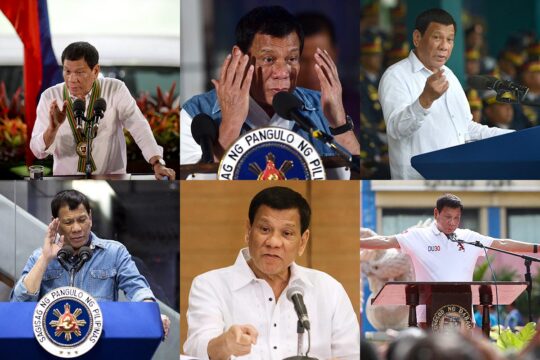“Most absurd statement I have heard. Case of robbing Peter to pay Pau when the perpetrators are sitting on millions” – “Absurd and tone deaf” – “A pathetic, illogical and inappropriate proposal for sure. And the culprits?” The reactions were mostly negative, after local newspaper Today in Seychelles asked its readers this one simple question: “The Truth Reconciliation National Unity Commission has announced in an interview over the national television channel their proposal for a national lottery from which to pay compensation to victims who have brought their case to the Commission. What do you think of their proposal? »
The Seychelles’ Truth, Reconciliation and National Unity Commission (TRNUC) resumed its session on May 25 after an eight week break due to Covid-19 pandemic. At the end of February, 425 cases had been registered with the commission, which started hearing cases in September 2019. Cases relate to allegations of murder, disappearance, unlawful land acquisitions, claims of denial of the right to employment or unlawful termination of employment, unlawful detention, torture, forced exile, rape, among others. Among those, over a hundred cases have been heard to date and, according to the TRNUC, most complainants anticipate that they will be awarded some form of compensation in recognition of the human rights violations they endured during the one-party system.
Speaking to Justice Info, the TRNUC’s chairperson, Gabrielle McIntyre defends the project of a lottery, submitted in a context of scarce financial resources for the country to President Danny Faure, whose decision is pending on the matter. The commission’s chairperson stresses that it’s not the commission role to raise money or to find ways of raising money. The government needs to explore the idea further, she says, as the country is going through an economic crisis due to Covid-19 and it was concerned that funds will be limited to award compensation to victims at the end of the process in September 2022.
“The Commission has made clear that it will seek to obtain or recommend that compensation be obtained from perpetrators who have unjustly enriched themselves through human rights abuses and abuses of power. But not all alleged perpetrators are people of means. There needs to be other sources of revenue available to award compensation”, says McIntyre. “What the TRNUC sought to underscore to the authorities is the importance of ensuring means are identified to compensate victims of human rights abuses”, adds McIntyre.
“A national lottery should be reserved for charity purposes”
The announcement of the national lottery was met by scepticism among victims as pointed out by two of them who spoke to Justice Info. Cyril Lautee, an active supporter of the resistance movement Mouvman Pour Larezistans (MPR) during the early 1980s, confessed in January before the TRNUC his involvement in various plots to destabilize the government during the one-party era. Lautee and his family were targeted and victimized. He was eventually forced into exile after losing his job as a pilot. During his testimony, he asked for forgiveness for his actions that could have hurt innocent people and called on the alleged perpetrators to do the same.
Lautee who says he is willing to forgive supports the idea of compensation but does not believe that this should be borne by the Seychellois people. “The people who abused us and violated our rights still have many assets in the country and I believe these should be disposed of to compensate the victims. A national lottery should be reserved for charity purposes. In our case, we were abused and harassed by a small group of people and they should pay personally for what they did to us”, says Lautee.
Lautee, who has appeared thrice before the commission as a complainant and witness to two other incidents, adds that although he feels compensation might help some victims, it might not be enough to bring closure. “How do you calculate the damage done, the abuse and a person’s trauma? I was tortured, lost my job, forced into exile and torn away from my family. I lost many years and what happened to me still traumatizes me to this day. Can you put a price to it?”, adds Lautee.
Former police officer Rivalse Hoareau who presented his case behind closed doors during the first week of June, is also seeking compensation. “Former President Albert Rene has so many assets in the country. My case dates to when he was president and it was under his presidency that my right was violated. So, it is only fair that his assets are used to compensate me and other victims”, says Hoareau. “Why should we go to the people to ask them to buy a lottery to helps us? They were not the one who used their powers to abuse us and violate our rights”, adds Hoareau.
“Compensation for victims is a necessary remedy”
A risk, for a truth and reconciliation commission that is highly respected, based on people’s reactions, would be that the proposal of a lottery undermines the seriousness of the exercise. McIntyre doesn’t think so: “A lottery is voluntary, people do not have to participate in it and it was just a proposal made to start the debate and thinking on where the money for compensation can come from”, she says.
“The purpose is to find the truth and to reconcile and unite people. The act establishing the commission seeks to find the truth by offering an amnesty to perpetrators and to help right the wrongs that occurred. The act provides for the commission to recommend reparations and compensation to victims”, adds McIntyre. “Compensation for victims is a necessary remedy, particularly where perpetrators are benefiting from the possibility of amnesty following a full and frank disclosure and sincere apology. Compensation is a means of acknowledging a wrong”, she further adds, explaining that the issue of how much to pay victims based on the crime, is currently being researched by the commission.
On June 5, the Anglican Archbishop Emeritus of the Indian Ocean French Chang Him, testified in 2019 before the TRNUC on his brother David Son Chang Him killing, in 1977. “We are asking people to take part in a national lottery at a time when people have very little themselves. Maybe we should sort out the money from other funds such as the anti-corruption commission which is investigating corruption cases and which we hope will eventually prosecute individuals who may have plundered the state’s money”, says the Archbishop to Justice Info.







